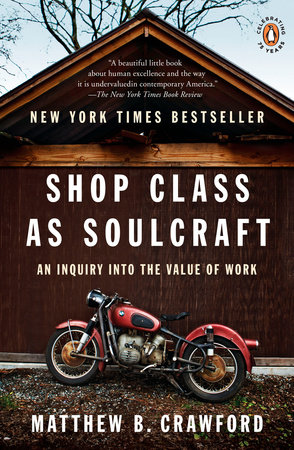I've been relentless in my own research and development into emerging digital trends since I started teaching computer technology ten years ago - it's why we've won more medals in more different Skills Ontario/Skills Canada categories than any other classroom in the province over the past six years. Our competition successes in CyberTitan/Cyberpatriot, along with our work in Skills Ontario/Canada is one side of the equation, but where I get a real charge is hearing back from grads. This is somewhere that public education studiously ignores (collecting data on graduates). If I had one immediate wish for a change in public education, it would be to collect data on graduate success across all pathways. We love flying blind in public education, that way we're not responsible for anything other than a graduation founded on our own criteria.

A colleague is sending her son to college this year and they told incoming students that those who have taken a year off before beginning postsecondary are much more likely to finish their program. Those who take two years off before returning are even more likely to see success. This jives with my own post-secondary experience where I, as an adult student who left work after three years to return to school, was one of the few who could be bothered to get in for 9am classes. It also aligns with anecdotal evidence I'm hearing from my own graduates. It is strange that I repeatedly hear students being told that if they don't go straight into post-secondary they'll probably never do it. It rates right up there with, "you're a smart kid, why wouldn't you go to university?" When that advice isn't being tested with success data, this approach seems remarkably flippant and privileged in tone.
I ran into a former student in the spring who went straight into university only to drop out in second year. He's now a barista. Yesterday I had lunch with one of our strongest IT students in the past ten years (he was the only one to earn multiple CompTIA industry certifications while still in high school. Industry certifications like this are often dismissed by traditional education institutions (mine were by the Ontario College of Teachers who gave me years of static before 'letting' me, a certified IT technician with years in the trade, take my computer technology teaching qualifications). This student is currently in his coop placement in college and is taking a year off because his coop wants to hire him for a contract (in Germany!). The college isn't being very helpful about his stepping outside of their program plan either. Institutions like to make sure they are at the front of the line in terms of benefitting from 'your' educational pathways.
 |
| I'm not the only one advocating for a less institutionalized approach to learning. |
I struggled in public education as a student, dropping out of my grade 13 year and then following college, apprenticeship and then university pathways as I found my way to what I was supposed to be (author, artist, technician, teacher). These decisions were often based on socio-economic difficulties (being a poor immigrant often excluded me from academic opportunities). Something else those institutionalized pathways are is steeped in privilege. The kids whose parents were paying for it all were also the ones who couldn't be bothered to wake up for those 9am classes.
I've always considered my first-hand knowledge of the many different pathways available to students to be of great benefit as a teacher. I can speak to students about the benefits and challenges of workplace, apprenticeship, college and university routes without having to refer them to boilerplate descriptions usually written by academics fixated on championing the institutional pathways they themselves have marched. I'm proud of how many of my students have gone in many different directions and found success. My own son just graduated high school and is just starting his first full time job in manufacturing in a state of the art factory and I couldn't be prouder (he's also making twice what the barista is and isn't paying off student loans that never produced anything). One of our CyberTitans from 2021 is in the process of applying directly to the Canadian Navy after working for a year (he is facing similar economic difficulties to what I faced as a young man). I'm as proud of those students as I am of the grads who have toughed out challenging post-secondary academic programs. Those crooked pathways aren't easier, but they are richer experientially and no one handed them to these kids, which results in a different kind of educational empowerment.
There are forward thinking organizations out there who aren't interested in maintaining traditional educational power structures so much as they are in empowering individuals so that they can leverage this information technology revolution we find ourselves in. We live in a time of unique opportunities where learning could be more accessible, less restrictive and more individualized than it has ever been in history, but only if we can reduce the institutional drag we're currently hauling with us into the future.
